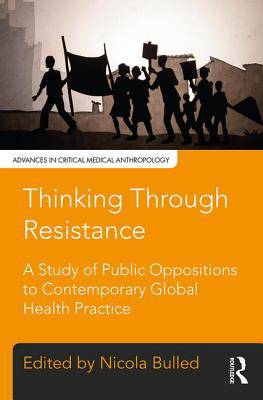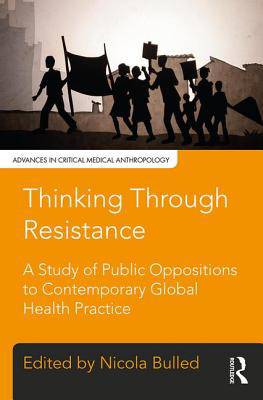
- Retrait gratuit dans votre magasin Club
- 7.000.000 titres dans notre catalogue
- Payer en toute sécurité
- Toujours un magasin près de chez vous
- Retrait gratuit dans votre magasin Club
- 7.000.000 titres dans notre catalogue
- Payer en toute sécurité
- Toujours un magasin près de chez vous
Thinking Through Resistance
A Study of Public Oppositions to Contemporary Global Health Practice
Description
Acts of public defiance towards biomedical public health policies have occurred throughout modern history, from resistance to early smallpox vaccines in 19th-century Britain and America to more recent intransigence to efforts to contain the Ebola outbreak in Central and West Africa.
Thinking through Resistance examines a diverse range of case studies of opposition to biomedical public health policies - from resistance to HPV vaccinations in Texas to disputes over HIV prevention research in Malawi - to assess the root causes of opposition. It is argued that far from being based on ignorance, resistance instead serves as a form of advocacy, calling for improvements in basic health-care delivery alongside expanded access to infrastructure and basic social services. Building on this argument, the authors set out an alternative to the current technocratic approach to global public health, extending beyond greater distribution of medical technologies to build on the perspectives of a political economy of health.
With contributions from medical anthropologists, sociologists, and public health experts, Thinking through Resistance makes important reading for researchers, students, and practitioners in the fields of public health, medical anthropology, and public policy.
Spécifications
Parties prenantes
- Editeur:
Contenu
- Nombre de pages :
- 144
- Langue:
- Anglais
- Collection :
Caractéristiques
- EAN:
- 9781629583358
- Date de parution :
- 03-03-17
- Format:
- Livre broché
- Format numérique:
- Trade paperback (VS)
- Dimensions :
- 156 mm x 233 mm
- Poids :
- 290 g






